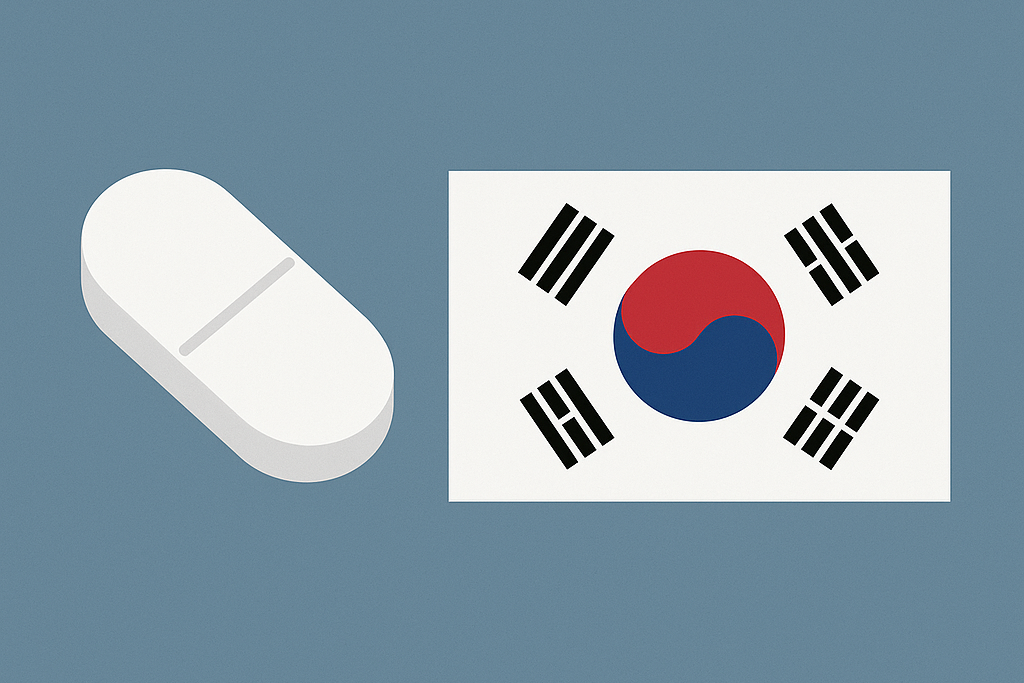The short answer is: modafinil is prescription medication in this country. Modafinil In South Korea is classified as a controlled psychotropic substance under the Narcotics Control Act. This means it is recognized as a legitimate medical treatment when prescribed by a licensed physician, but it is also regulated to prevent misuse or abuse.
How Can You Obtain Modafinil in South Korea?
Modafinil is available in South Korea under brand names like Modiodal and others, primarily for:
- Narcolepsy
- Shift-work sleep disorder
- Obstructive sleep apnea-related daytime sleepiness
If you have a diagnosed sleep disorder, you can visit a hospital or clinic and, after evaluation, your doctor may prescribe modafinil as part of your treatment plan. Pharmacies will dispense it with a prescription.
Note: Doctors in South Korea are generally conservative in prescribing medications like modafinil, especially for off-label use such as cognitive enhancement. It is unlikely you’ll get a prescription simply by asking for it as a study aid or work performance booster.
Bringing Modafinil Into South Korea
If you’re visiting South Korea and have a prescription for modafinil from your home country, you can bring a personal supply, but there are rules:
- You may carry up to 30 days’ worth of medication for personal use.
- It is better to carry your original prescription or a doctor’s note.
- It is better to declare the medication upon arrival if asked by customs.
Attempting to import larger quantities or shipping modafinil into South Korea without approval could result in confiscation, fines, or even criminal charges.
If you buy modafinil overseas it is better to not order more than 30 days supply or at least big orders should be split in parts to avoid problems in customs.
Why Is Modafinil Controlled in South Korea?
The South Korean government classifies modafinil as a controlled psychotropic drug due to:
- Its potential for psychological dependence with misuse.
- Its growing popularity for non-medical purposes (study drug or “smart drug”).
- Concerns about public health and fairness in competitive settings like universities and workplaces.
As a result, it is regulated similarly to other controlled medications, even though it has a relatively low abuse potential compared to classic stimulants.
Alternatives to Modafinil in South Korea
In South Korea, modafinil is legal but tightly controlled, prescribed only for specific conditions like narcolepsy, sleep apnea-related daytime sleepiness, and shift-work sleep disorder. However, modafinil is not widely prescribed for off-label purposes such as cognitive enhancement, and doctors are generally conservative about its use.
For those who cannot access modafinil — or for whom it’s unsuitable — here are the main legal and clinically accepted alternatives available in South Korea:
Armodafinil (Nuvigil)
- What it is: Armodafinil is the R-enantiomer of modafinil, offering similar effects with a longer half-life and a potentially smoother onset.
- Why it’s an alternative: In some hospitals and sleep clinics, armodafinil has been approved as an alternative to modafinil for the same conditions.
- Availability: Prescription-only, and more expensive than modafinil.
- Best for: Patients needing longer-lasting wakefulness with a lower total dose.
Methylphenidate (Concerta, Ritalin)
- What it is: A stimulant used primarily for ADHD but sometimes prescribed off-label for excessive daytime sleepiness in certain cases.
- Why it’s an alternative: Although more stimulating and with higher abuse potential, it’s effective at improving alertness.
- Availability: Prescription-only, under tight control (classified as a psychotropic drug).
- Best for: ADHD patients with co-existing sleep issues or those who don’t respond to modafinil.
Amphetamine-Based Medications
- What they are: Medications containing dextroamphetamine or mixed amphetamine salts.
- Why they’re alternatives: These are very rarely used in South Korea but technically possible under strict conditions.
- Availability: Extremely limited; reserved for severe cases of ADHD or narcolepsy.
- Best for: Rarely considered except as a last resort.
Non-Stimulant Wakefulness Aids
- Caffeine-based therapies: Some doctors may recommend high-dose caffeine therapy for milder cases.
- Lifestyle interventions: Light therapy, scheduled naps, and behavioral changes are often recommended alongside or instead of medication.
Other Non-Stimulant Medications (Less Common)
- Pitolisant (Wakix): A histamine receptor agonist approved in some countries for narcolepsy, but as of 2025 it’s not widely available in South Korea yet.
- Sodium Oxybate (Xyrem): Available in some specialized settings for narcolepsy with cataplexy, but rarely used due to cost and complexity.
